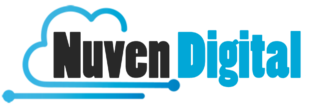In today’s fast-paced business environment, efficiency is more than a buzzword—it’s a crucial factor for success. Technological advancements have paved the way for tools that streamline operations, foster collaboration, and optimize time management. These tools are essential for businesses aiming to maintain a competitive edge and ensure smooth internal interactions. Keep reading as we delve into the top tools that can drastically enhance your business efficiency.
Time Tracking and Network Monitoring Tools
Meticulous time tracking paired with analytics can uncover the true productivity pulse of an organization. Time tracking tools provide visibility into how employees spend their workday, allowing businesses to identify areas where time is being utilized effectively or wasted. The insights garnered from these tools are instrumental in streamlining processes and reducing inefficiencies.
Analytics derived from time tracking can alarm managers to unsustainable work patterns that may lead to burnout or disengagement. By understanding work rhythms, leaders can reallocate tasks to balance workloads more equitably, ensuring a healthier work environment and sustained productivity. Time tracking also underpins the foundation for a flexible work culture that values output over hours logged.
The integration of time tracking with networking monitoring tools provides a comprehensive view of not just when work happens, but also how it intersects with technology use. This combination aids in tech-related decision-making and showcases the importance of robust digital infrastructure in maintaining efficiency.
Streamlining Communication With Advanced Messaging and Collaboration Platforms
In the digital age, seamless communication is key to business operations. Advanced messaging and collaboration platforms are redefining how colleagues interact with each other and how information is shared. These tools enable instant messaging, voice and video calls, file sharing, and even social networking features to keep everyone connected and informed.
As these platforms become the virtual hubs of workplace activity, they foster a culture of open dialogue and team engagement. Distance fades as a hindrance; remote teams can work together as if they were in the same room, offering suggestions, feedback, and solutions in real time. This immediacy accelerates decision-making processes and eliminates long email threads that can bury important information.
Integrations with other software systems enhance the value of these platforms even further. Users can access and share documents or data from project management or CRM systems without leaving the conversation. This consolidation of resources saves valuable time that might otherwise be spent switching between disparate systems.
Harnessing the Power of Customer Relationship Management Software for Business Growth
Customer Relationship Management (CRM) software is the cornerstone of any business that values its customer base. CRM platforms provide a multidimensional view of customer interactions, preferences, and history, all of which are crucial for personalized marketing, sales strategies, and customer service excellence. The centralization of this customer data is key to tailoring experiences that build loyalty and encourage repeat business.
Through the strategic use of CRM tools, businesses can streamline their sales processes and improve lead management. Sales teams gain insights into prospects and can nurture them through the sales funnel with greater precision. This targeted approach can significantly boost conversion rates and reduce the sales cycle duration.
Moreover, CRM software assists in the dissemination of customer feedback throughout the organization. Product development and service teams can adapt based on real-time customer data, fostering an environment of continuous improvement. This responsiveness to customer needs is intrinsic to maintaining a competitive advantage.
Altogether, the deployment of these technological tools is crucial in enhancing business efficiency, driving growth, and staying adaptive in ever-changing markets. Overall, they provide a framework for operational excellence and pave the way for a culture of continuous improvement and innovation.



